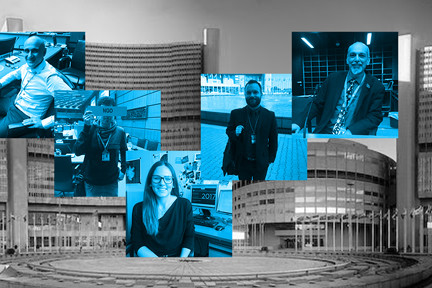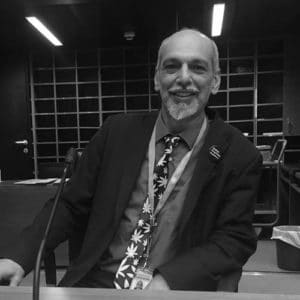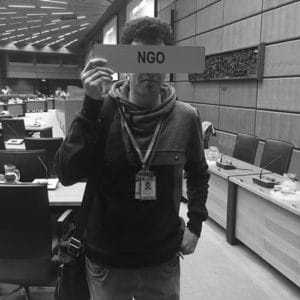Humans of the Commission on Narcotic Drugs
Meet some of the people on the front lines of global drug reform at The Commission on Narcotic Drugs in Vienna.

Psymposia is a 501(c)(3) nonprofit research and media organization that offers critical perspectives on drugs, politics, and culture. We rely on contributions from our readers and listeners. Your support is vital to sustaining Psymposia.
Support Psymposia’s independent journalism on Patreon and help us drive the Mystery Machine! We’re a bunch of meddling kids who are unmasking the latest shenanigans on the psychedelics beat.
The Commission on Narcotic Drugs (CND) is the central policy-making body for the United Nations Office on Drugs and Crime (UNODC) and the final decision maker on the scheduling of substances. The Commission holds its annual meeting in Vienna, Austria every March with additional conferences in December, and inter-sessional meetings, as needed, throughout the year.
Students for Sensible Drug Policy (SSDP) is represented in these meetings by its Austrian chapter who are working tirelessly to amplify the voices of young people, a demographic whose protection the UN claims to prioritize.
This year’s CND begins next week, March 12th, and with the help of SSDP Österreich (Austria in German), we are starting a project, mirroring the acclaimed Humans of New York series, to introduce you to the humans on the front lines of global drug policy and advocacy.
Farid Ghehioueche, Head of Advocacy at Foundation for Alternative Approaches to Addiction (civil society representative)

“There is a long road ahead until legal regulation of drugs is a reality, but now we are finally seeing the light. More and more people are aware that the World is not benefitting from the prohibitionist approach and a Peace on Drugs is needed.”
Dr. Larissa J. Maier, UNODC Drug Research Section (former Consultant in Drug Use)

“As a psychologist and addiction researcher, I am interested in human behavior and its impact on health and well-being. And well, I think there are no good or bad drugs but there are good and bad patterns of use depending on frequency and amount of use. Overall, it is our responsibility to ensure that all people who use drugs have access to information and treatment. The fact that the stigma against people who use drugs is still high in many countries of the world makes it more difficult to try new and innovative approaches.
Nevertheless, no person ever deserves the death penalty and no person ever should be criminalized for drug use or possession of small amounts. In the short-term, my aim is to conduct evidence-based research to inform drug policy. In the long-term, I aim to understand how changes in drug policy can affect existing inequalities in societies in a beneficial way.”
Ian Hodges, Health Canada (country delegate)

“It is important for governments to continue to work on broad drug prevention efforts. At the same time, regardless of the kind of substances that people are using, we have to make sure citizens have fact based information, so they can make choices free of stigma and that they are well aware of the risks of their decisions. We have to make sure they are able to do so in a safe and healthy environment.”
Konstantin Labartkava, Eurasian Harm Reduction Network, Executive Director The New Vector (civil society representative on behalf of GeNPUD)

“We need more civilized approaches, such as prevention of harm, medical rehabilitation, social programs, therapies. Psychedelic treatments have shown fruitful results for problematic drug users and rather than repressive measures, it gives them an opportunity to care for themselves, their families and communities.” (Special thanks to Natia Vardzelashvili for interpreting)
Kenzi Riboulet Zemouli, Head of Research at Foundation for Alternative Approaches to Addiction (civil society representative)

“I know many people who use illegal drugs that act more rationally than those who defend this strange idea of a drug-free World.”
Hey! Before you go… Psymposia is a 501(c)(3) non-profit media organization that offers critical perspectives on drugs, politics, and culture. We strive to ask challenging questions, and we’re committed to independent reporting, critical analysis, and holding those who wield power accountable.
Our perspectives are informed by critical analysis of the systemic crises of capitalism that have directly contributed to the unmitigated growth of addiction, depression, suicide, and the unraveling of our social relations. The same economic elite and powerful corporate interests who have profited from causing these problems are now proposing “solutions”—solutions which both line their pockets and mask the necessity of structural change.
In order for us to keep unpacking these issues and informing our audience, we need your continuing support. You can sustain Psymposia by becoming a supporter for as little as $2 a month.





